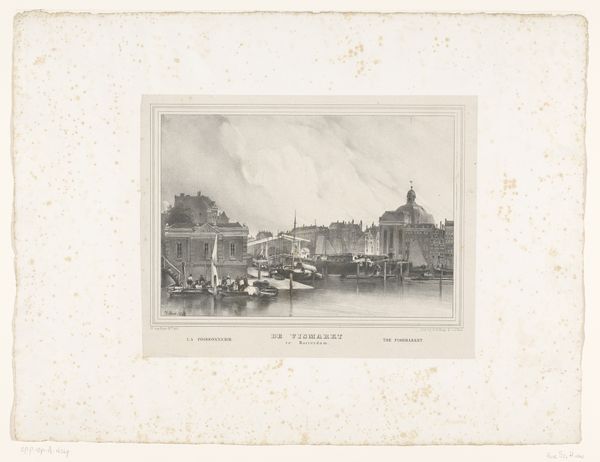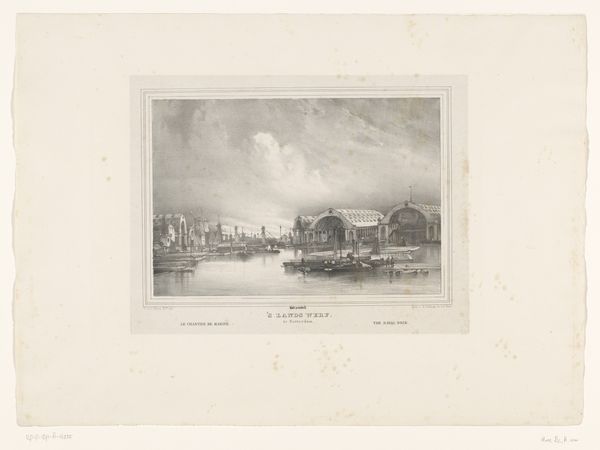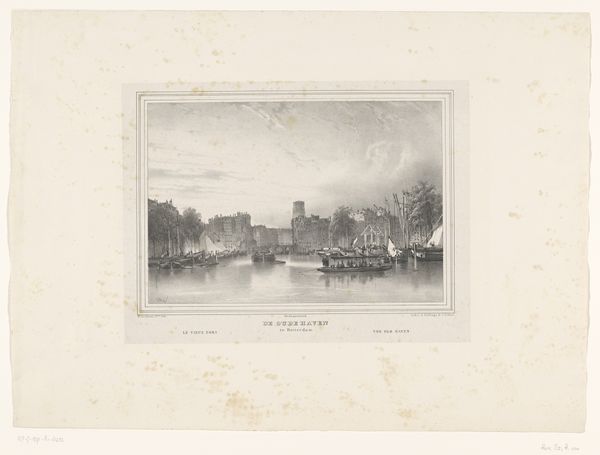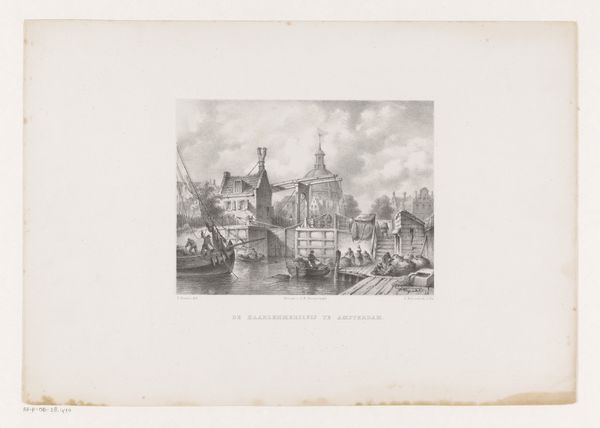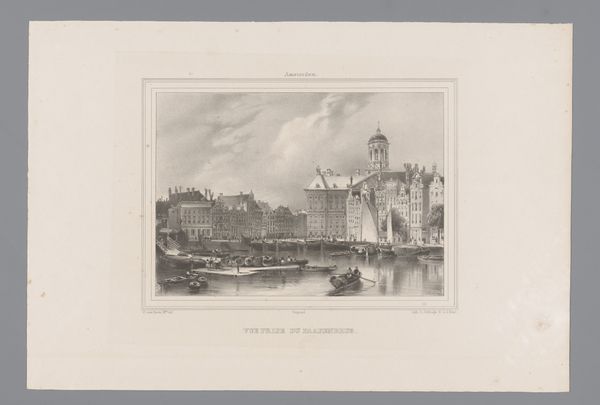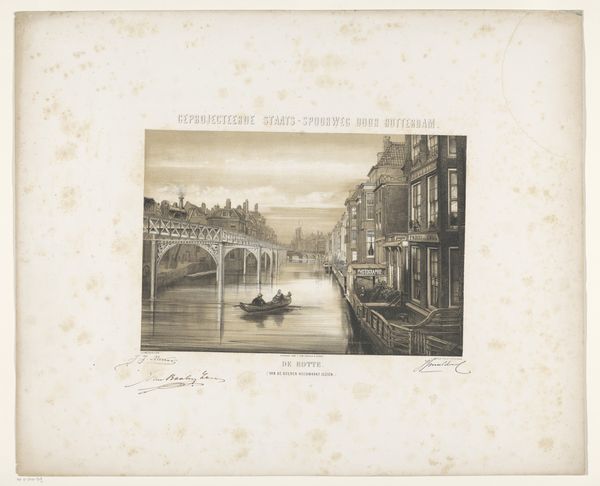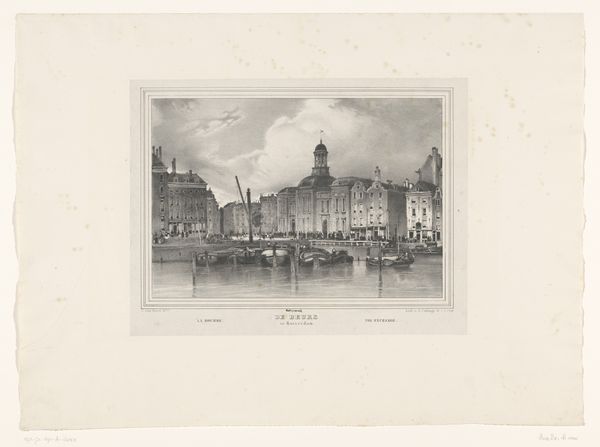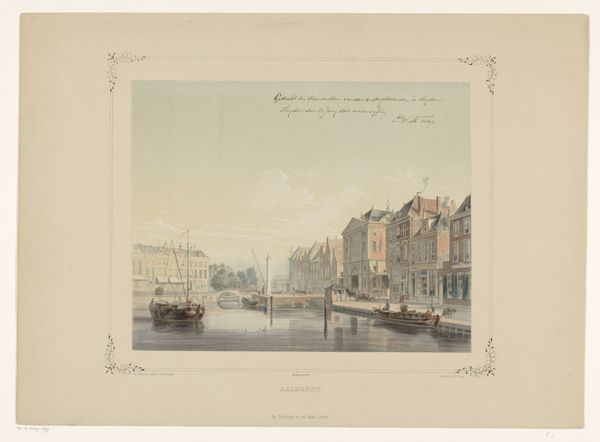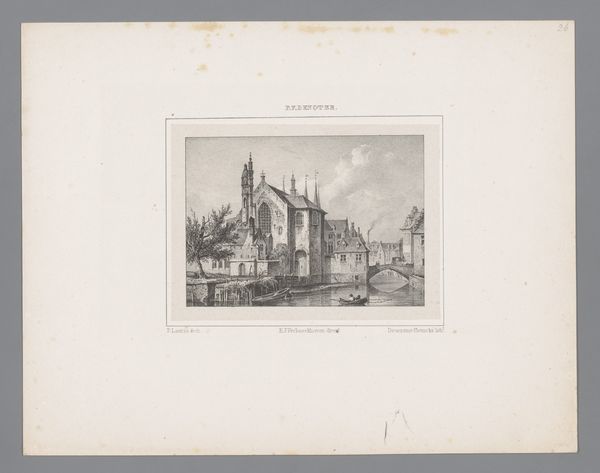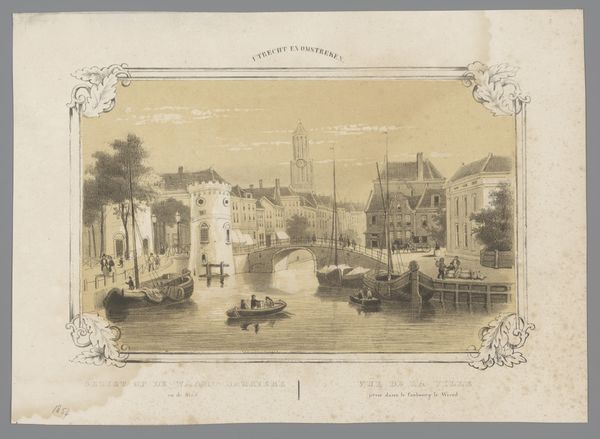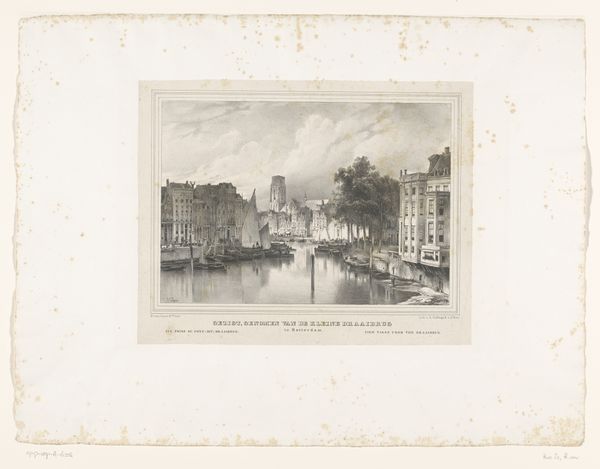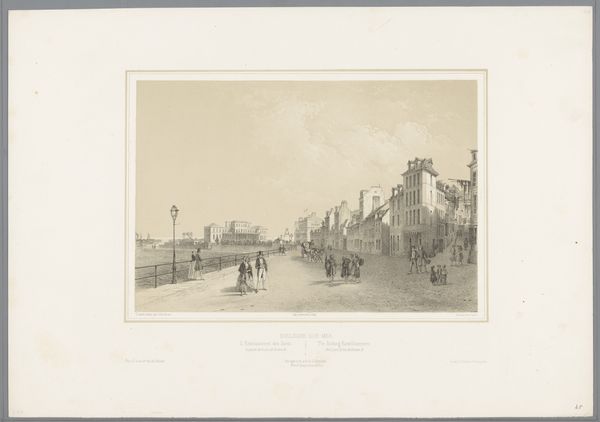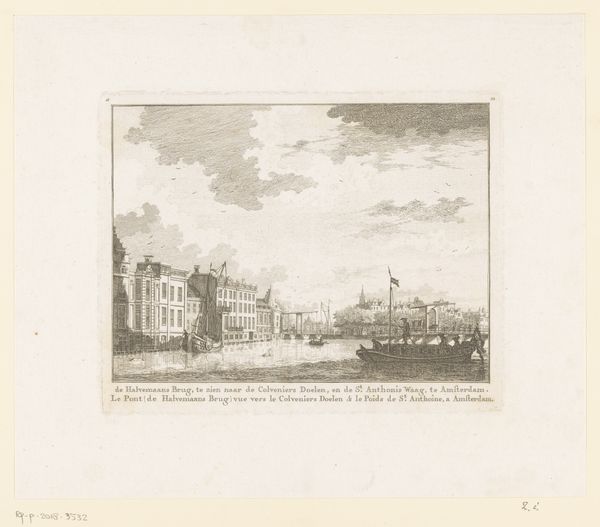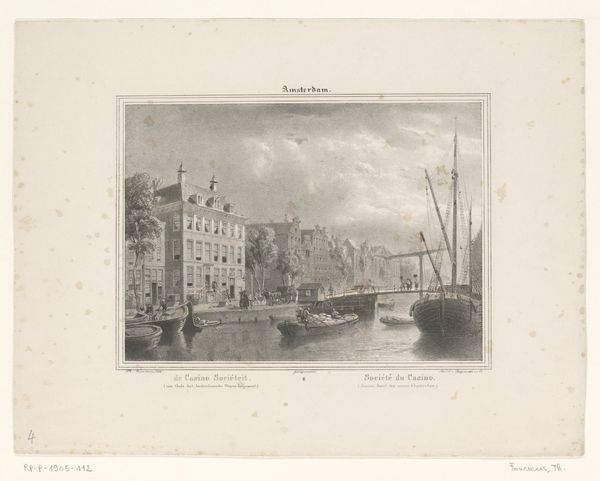
drawing, print, paper, ink, engraving
#
drawing
# print
#
paper
#
ink
#
romanticism
#
cityscape
#
engraving
#
watercolor
#
realism
Dimensions: height 290 mm, width 425 mm
Copyright: Rijks Museum: Open Domain
This print, showing the Amsterdam stock exchange from the Rokin, was made by Huib van Hove, sometime in the mid-19th century. It’s an etching, a printmaking process that relies on the corrosive power of acid. The artist would have started with a metal plate, likely copper or zinc, covering it with a waxy, acid-resistant ground. Then, using a sharp needle, he would carefully draw the image, exposing the metal underneath. Immersing the plate in acid would bite into these lines, creating grooves. The longer the acid bath, the deeper the lines, which ultimately hold the ink. The plate is then inked, wiped clean, and pressed onto paper. Look closely, and you can see the fineness of the lines. The depth of tone achieved through this method gives the print a remarkable sense of atmosphere, reflecting the industrious city. This image is a testament to the skilled labor involved, and the cultural and economic energy of Amsterdam. Ultimately, understanding its making helps us appreciate the wider social forces at play.
Comments
No comments
Be the first to comment and join the conversation on the ultimate creative platform.
